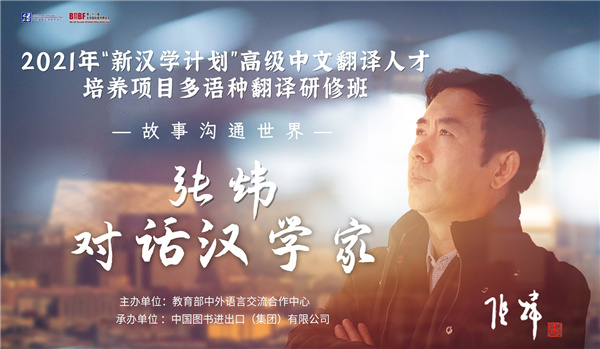Seminar facilitates dialogue among writers, translators
chinadaily.com.cn | Updated: 2021-11-10 17:03

Innovation essential to translation
Translation of literary works is complicated, and translators' innovation and creation directly affects their translation quality. Excellent translators must be proficient in the native and target languages. They must carefully study works written in their native language and understand their social and cultural context. Simultaneously, they must also understand the target language's cultural context and make appropriate adjustments and adaptations according to the reader's cultural traditions and aesthetic propensity. These necessary adjustments and adaptations are matters of the translators' subjectivity and responsibility. To a certain extent, they are cultural collisions, mental dialogues and ideological communications with the author of the original works.
When talking about Zhang Wei's novel Gu Chuan (Ancient Ship), young Turkish Sinologist Giray Fidan said the Turkish version of the book has been quite a success, and Turkish readers attach great importance to it. But he felt it challenging to translate it, saying, "To express better the blended history of the past and the present described in the book and reflect the ambivalent feelings of the characters facing modernization, I had to put myself in the shoes of the world constructed in the book."
When US Sinologist and translator Haiwang Yuan talked about his experience working with Zhang, he said Zhang is serious about the translation of his works. "He always carefully selects translators and communicates closely with them. Zhang Wei received and replied to a hundred letters an overseas translator wrote to him, asking him questions about a book he was translating. Zhang Wei patiently answered each of his questions." Yuan also shared an intriguing detail from translating Zhang Wei's Ci Wei Ge (Songs from the Forest). He tried to retain some of the book's Shandong flavor permeating the book by introducing the native slang tongzuizi, meaning "interpreter," to target-language readers. He chose a literal translation with an annotation to help readers grasp its meaning while keeping the vernacular term intact.
























